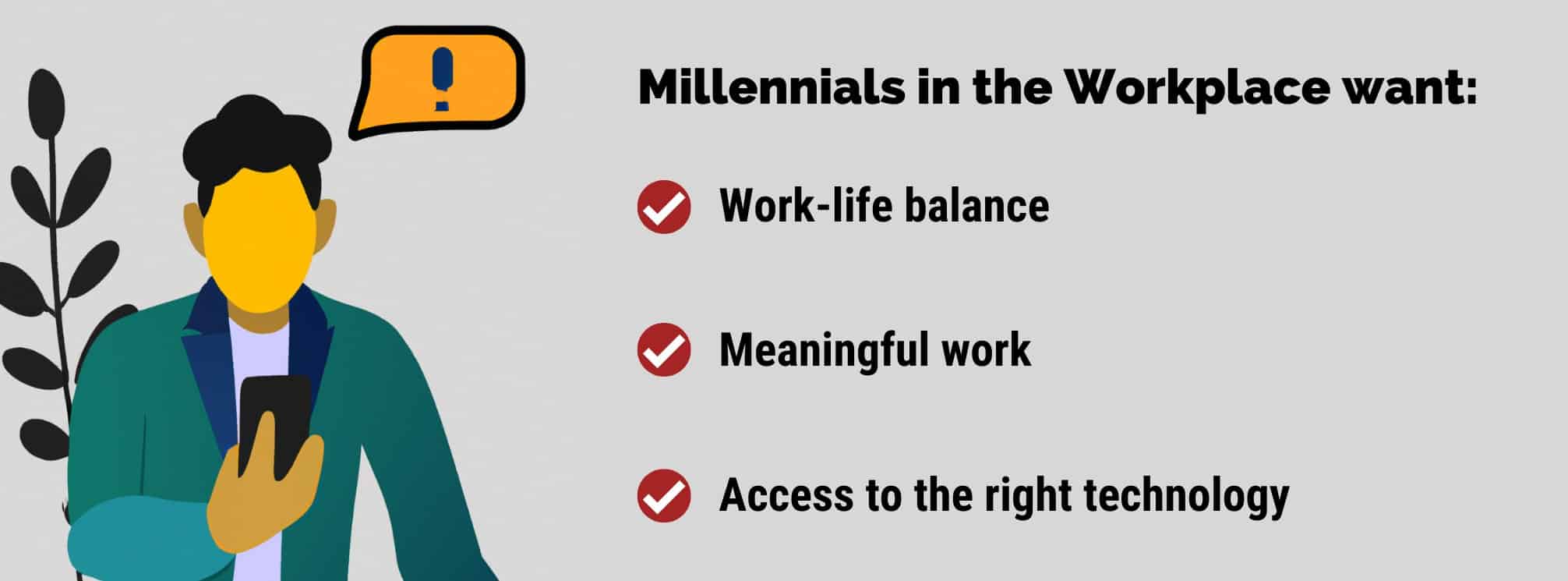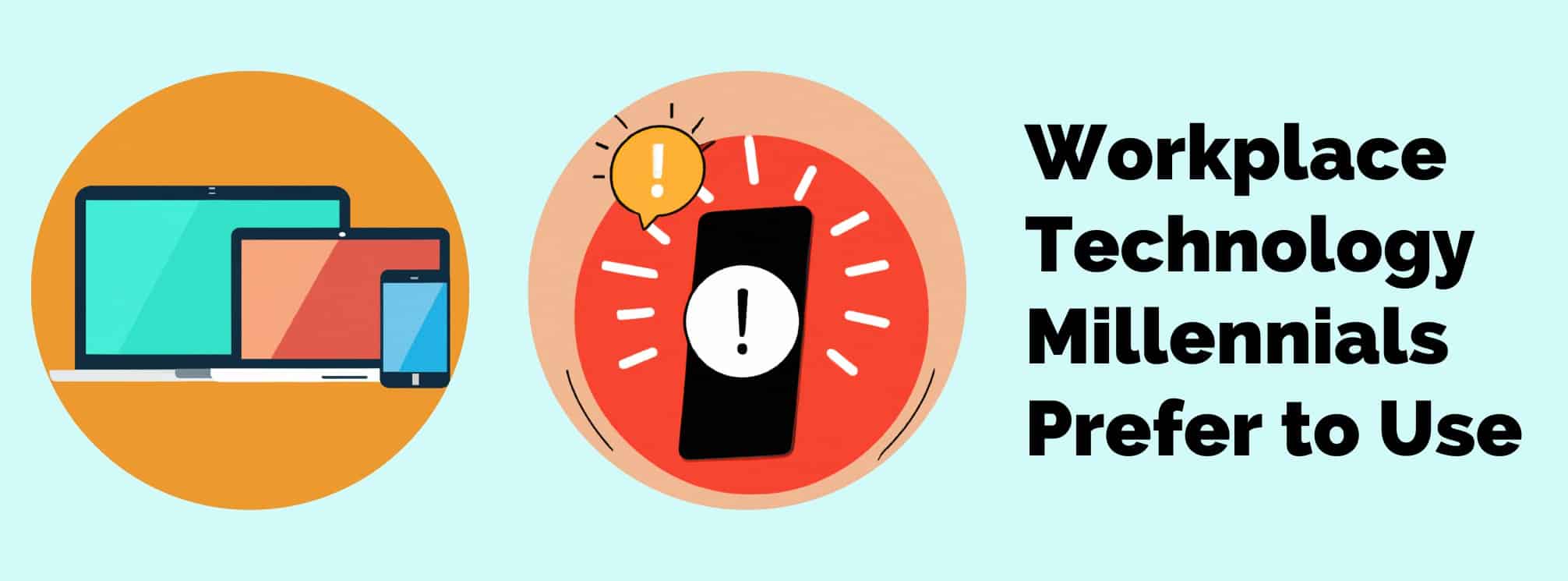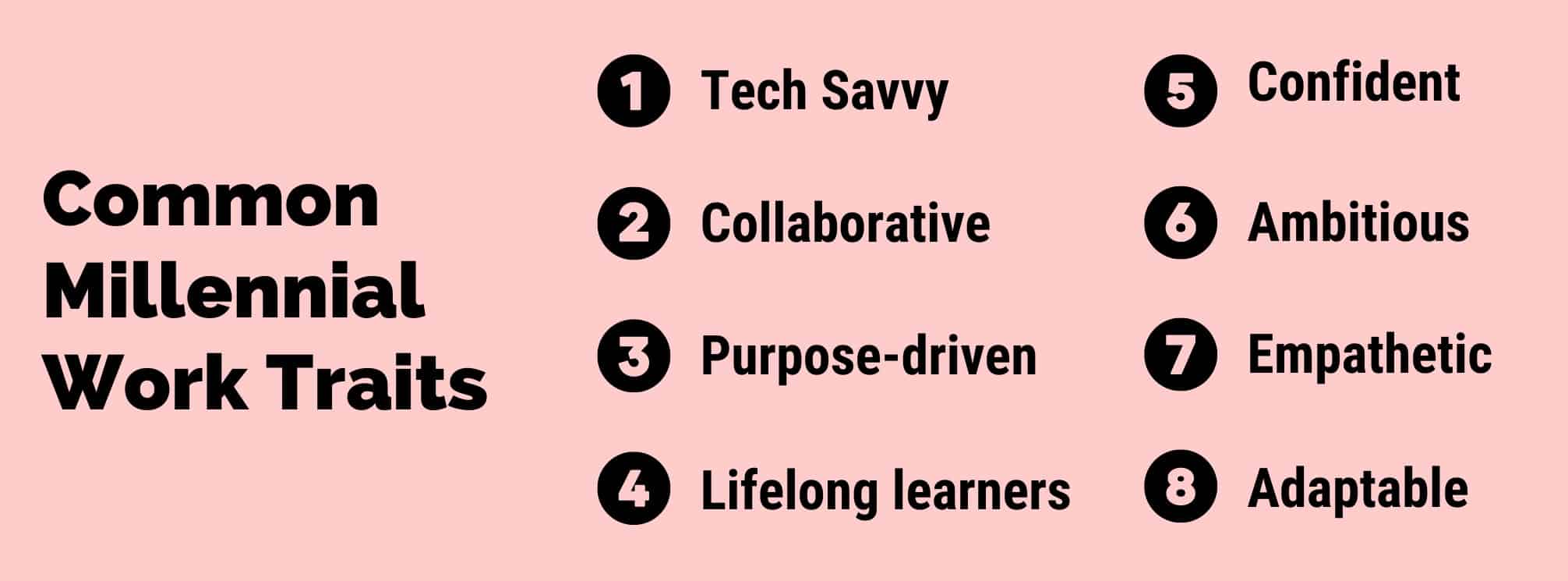
You hear a lot about Millennials in the workplace. How they don’t work very hard but might change the world. About how technology-obsessed they are but never knew a time without it. How they have different expectations about the workplace—and how this is a problem to be solved, rather than an important part of the evolution of work. Whenever we talk about any generation, the same thing happens. We have these stereotypes in our heads of the big, so-called problem with them. And we want to fix it. We want everyone to fit in the same square peg. But that’s a big problem for businesses.
Millennials are anyone born between 1981 and 1994, meaning they’re around 25 – 40 years old currently. Because this is a very large range of time, marked by rapid technological growth, there can be some very big differences between younger and older millennials.
Millennials on the younger side of this range may actually resonate as a “Zillennial.” These are people who are on the cusp of being either a Millennial or Generation Z. This micro-generation is more common for those born in the early to late 1990s, and they might feel like they really don’t belong in either cohort.
You may also have heard the term “Geriatric Millennial,” which feels a bit harsh for those who are on the older side of the Millennial spectrum. But this group of Millennials also used to be called Cuspers or Xennials due to their closeness to Gen X.

Although all people want a lot of the same things at work—to be valued, to be challenged, and to grow. But all generations have unique priorities and preferences at work. For millennials that includes:

Because Millennials are a generation that grew up with technology, they’re very comfortable with it. If you’re familiar with the Technology Adoption Curve, they’re likely going to be in your innovators and early adopters categories.
If you want to engage them at work, you’ll need to find the right kind of workplace technology. Here are some examples:
Regardless of what technology you use, your Millennials really care about their digital experience. They want efficiency. They want to be able to collaborate. And they want to be able to use their mobile devices for most of it.
All these characteristics and preferences make Millennials a unique generation of workers. On average, Millennials are:

Unfortunately, there are a lot of stereotypes of Millennials. But these are often unfounded or highly exaggerated.
These stereotypes are the fuel that businesses sometimes use to strike down getting the right internal communications tool or making sound business decisions.
We assume that anyone older than Millennials in the workplace won’t use smartphones for work. So they shoot down the right tool to reach their workforce when they aren’t in the office or only work out in the field. When in fact, over 97% of US adults own a smartphone (PEW Research). And I don’t know about you, but my grandma’s emoji game is on point—she owns a smartphone and uses it.
In fact, 8 in 10 digital minutes are spent on mobile devices (Marketing Charts). So, why are we letting stereotypes override data that proves we are more alike than we think?
There’s a great TedTalk about how generational stereotypes are holding us back at work that talks about how generations might be a myth. They might not really exist.
Leah Georges says in her Ted Talk:
“If we can agree that these groups even exist, we certainly don’t agree who belongs in them. At whatever point in history, a one-year-old and a 20-year-old are said to share the same value system, to want the same things at work, to have the same stereotypes working for and against them…And these stereotypes about each generation have, in a lot of ways, created this self-fulfilling prophecy, that people begin to act as if they’re part of that generation because we’ve said out loud that generation is real. I’m not so sure that it is.”
All generations actually want many of the same things. We all want:
That doesn’t mean that there won’t be differences between people of different ages. Sure there will. But those differences are more defined by life circumstances or individual experiences than by the generation you fall into.
“What if we radically, simply, not easily, meet people where they are? Individualize our approach…but this requires flexibility and curiosity.” —Leah Georges
At theEMPLOYEEapp, our mission is to enable the effortless flow of meaningful information for businesses with largely frontline workforces.
We work with companies, many of whom were so antiquated in their approach that they had no way of reaching all their employees. Even organizations that had older workforces.
And there is nothing that makes someone feel more valued and supported by their company than including them in communication. Or by giving them the tools they need to succeed at work and giving them the flexibility they need to access resources wherever they are.
[optin-monster slug=”gqorn0natkqgyrtjvr6i” followrules=”true”]